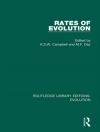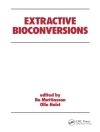Our health, our income and our social networks at older ages are the consequence of what has happened to us over the course of our lives. The situation at age 50+ reflects our own decisions as well as many environmental factors, especially interventions by the welfare state. This book explores the richness of 28, 000 life histories in thirteen European countries, collected as part of the Survey of Health, Ageing and Retirement in Europe (SHARE). Combining these data with a comprehensive account of European welfare state interventions provides a unique opportunity to answer the important public policy questions of our time – how the welfare state affects people’s incomes, housing, families, retirement, volunteering and health. The overarching theme of the welfare state creates a book of genuinely interdisciplinary analyses, a valuable resource for economists, gerontologists, historians, political scientists, public health analysts, and sociologists alike.
สารบัญ
PART I: Income, Housing, and Wealth.- PART II: Work and Retirement.- PART III: Health and Health Care.- Part IV: Persecution.
เกี่ยวกับผู้แต่ง
Prof. Axel Börsch-Supan, Ph.D., is Professor of Economics at the University of Mannheim, Director of the Mannheim Research Institute for the Economics of Aging (MEA) and Coordinator of the Survey of Health, Ageing and Retirement in Europe (SHARE).
Dr. Martina Brandt is a Senior Researcher at the Survey of Health, Ageing and Retirement in Europe (SHARE) in the Mannheim Research Institute for the Economics of Aging (MEA), University of Mannheim.
Prof. Dr. Karsten Hank is Professor of Sociology at the Institute of Sociology, University of Cologne.
Mathis Schröder, Ph.D., is a Senior Researcher at the German Socio Economic Panel (SOEP) in the German Institute for Economic Research (DIW). He was the Project Manager for the SHARELIFE project at the Mannheim Research Institute for the Economics of Aging (MEA) from 2007 to 2010.












